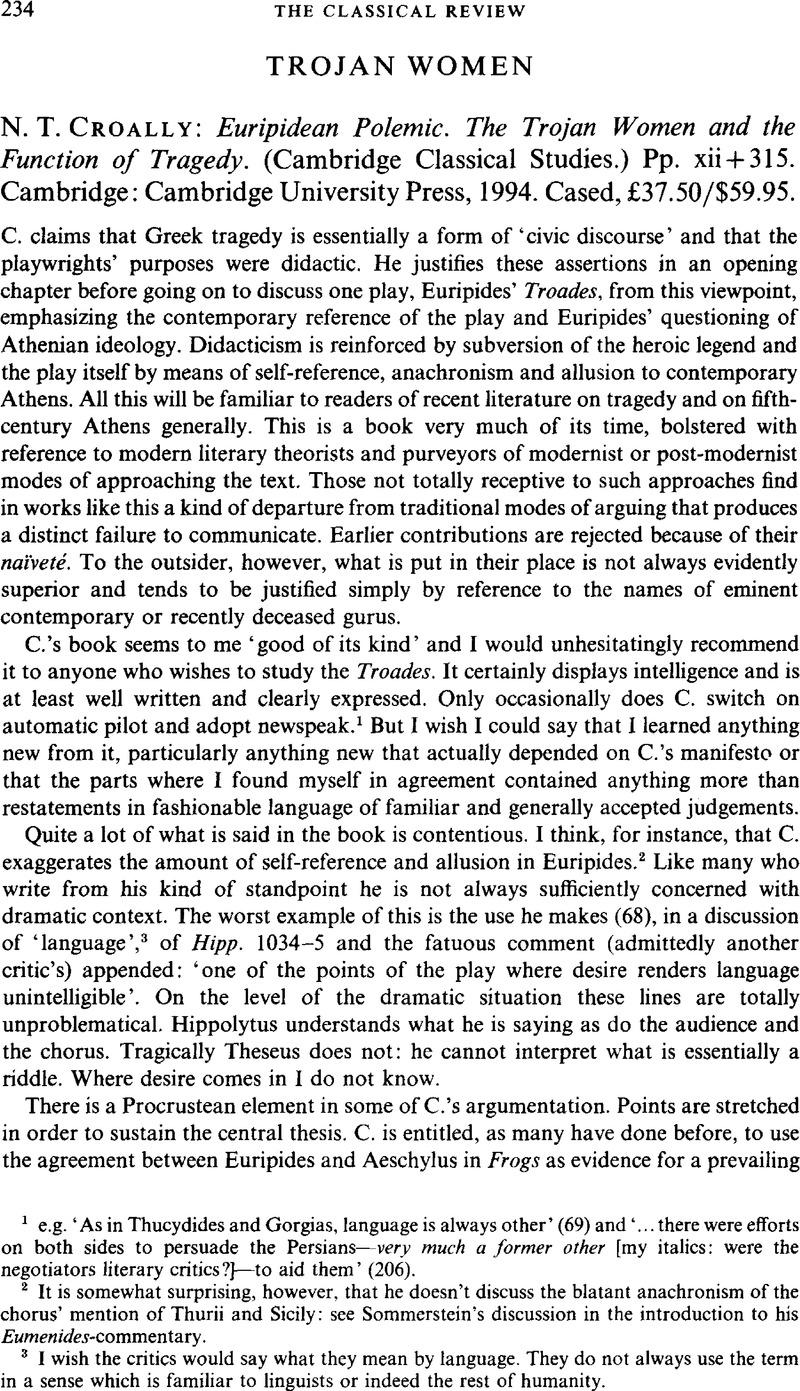No CrossRef data available.
Published online by Cambridge University Press: 16 February 2009

1 e.g. ‘As in Thucydides and Gorgias, language is always other’ (69) and ‘…there were efforts on both sides to persuade the Persians—very much a former other [my italics: were the negotiators literary critics?]—to aid them’ (206).
2 It is somewhat surprising, however, that he doesn't discuss the blatant anachronism of the chorus' mention of Thurii and Sicily: see Sommerstein's discussion in the introduction to his Eumenides-commentary.
3 I wish the critics would say what they mean by language. They do not always use the term in a sense which is familiar to linguists or indeed the rest of humanity.
4 Compare his dismissive treatment of Buxton (16 n. 56) and Nussbaum (37 n. 71).
5 I do not understand the point he is making in 247 n. 22. Two different topics are involved: when I said that there was a world of difference between actor and rhapsode I was stressing the obvious point that the actor enacts an action, the rhapsode narrates it. I do not see what this has to do with this particular instance of self-reference.
6 Is this the result of a misreading of the passage from Plutarch's life of Cimon cited in DFA2 96–7 ( on which see now Radt, S., The Importance of the Context, Mededelingen der Koninklijke Nederlanse Akademie van Wetenschappen 51. 9, [Amsterdam, 1988], 13ff.)?Google Scholar
7 Compare Ed. Fraenkel, Kleine Beiträge 2.581.